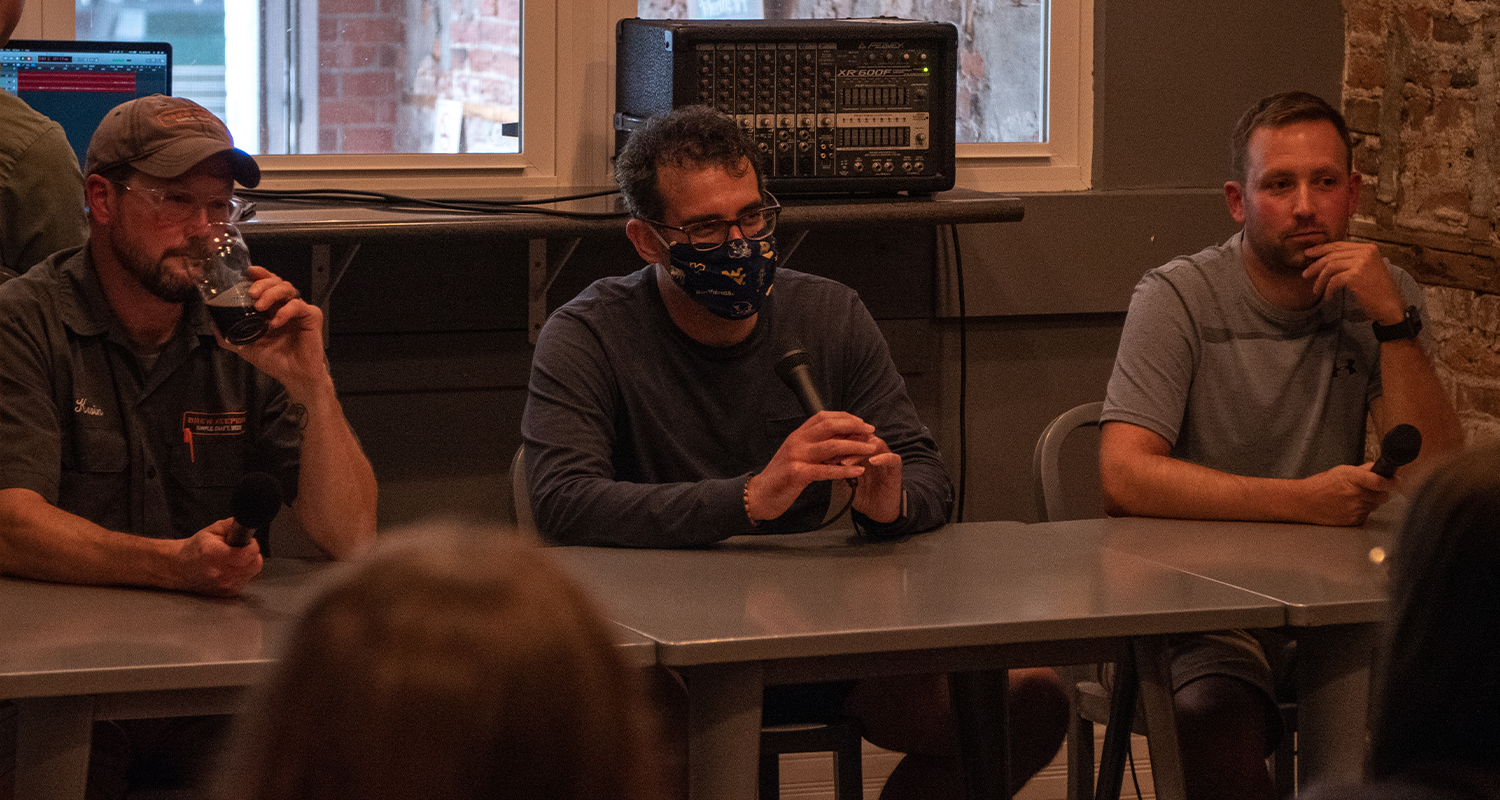If you followed along with our Henry Schmulbach podcast re-release this summer, then you know that Wheeling Heritage hosted a live podcast panel discussion with host and historian Hal Gorby, along with guest panelists Ryan Stanton and Kevin Ayres.
The panelists reminisced about the production of the “Henry: The Life and Legacy of Wheeling’s Most Notorious Brewer” and answered questions from the audience about Wheeling’s brewing legacy. If you missed the discussion, read through a few of the topics that were covered during the event. You can also listen to the full podcast here.
How have brewing processes changed (or stayed the same) over the years?
The process of making beer has generally been the same for centuries by using simple ingredients like water, barley, hops and yeast. What has changed, particularly in Wheeling, is the scale in which beer is produced. At its peak, Schmulbach Brewery would have produced more than 200,000 barrels of beer in a year. Today, microbreweries like BrewKeepers produce less than 15,000 barrels annually.
Is it true that beer was once marketed as a health drink?
Yes! In fact, Schmulbach marketed his beer as “the beer of the home,” suggesting that his beer should be consumed at breakfast, lunch and dinner. At the time, waterborne diseases such as cholera, typhoid fever, and dysentery were a constant threat to drinking water. The brewing processes helped kill illness-causing bacteria, making it a “safer” choice in that regard.
What were some other unique ways that brewers marketed their products?
Brewers like Henry Schmulbach and Anton Reyman Beer created one-of-a-kind experiences for the community to come together and share a pint. Reyman was the first to make beer-drinking a community affair by designing a beer garden and amusement park at Wheeling Park. Not one to be outdone, after seeing Reyman’s success at Wheeling Park, Schmulbach purchased Frazier Farm in Mozart to create Mozart Park – an amusement park where folks could dance, see plays, listen to music, enjoy a beer and more. To get there, Schmulbach built an incline to help transport people from South Wheeling up the hill to Mozart. Thousands would flock to these parks to escape the city to enjoy leisure time and a beer. Today, many small breweries continue to create a family-friendly atmosphere by providing board games, food trucks, and other leisure activities for patrons to enjoy.
How did prohibition impact Wheeling?
Thanks to the Yost Law, prohibition began in West Virginia six years before the rest of the country. The Yost Act was very restrictive and harsh in its sanctions – in fact, the maximum penalty for a third conviction under the Act was a life in prison! Aside from shuttering the brewing industry, prohibition had a ripple effect on other industries in Wheeling as well. Glass manufacturers, barrel makers, saloon owners and other brewing-adjacent industries would also suffer. During the prohibition era, industry became a lot less diversified and Wheeling primarily became known as a steel-producing town.
Thirsty for more? Listen to the full panel discussion here:



